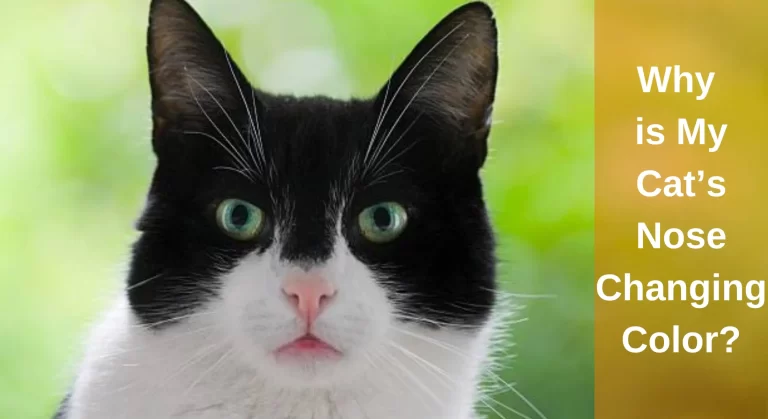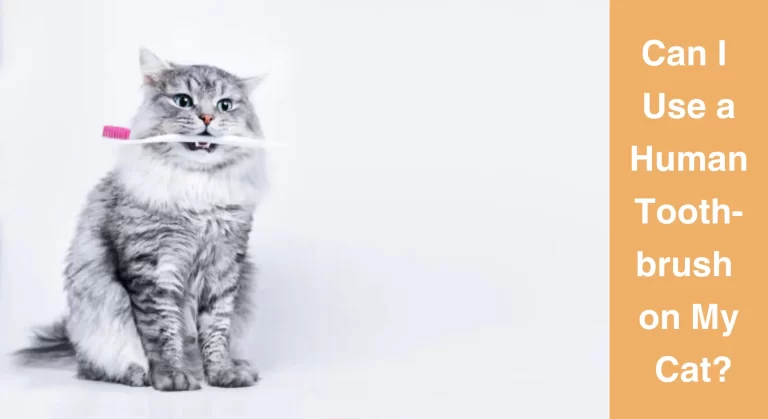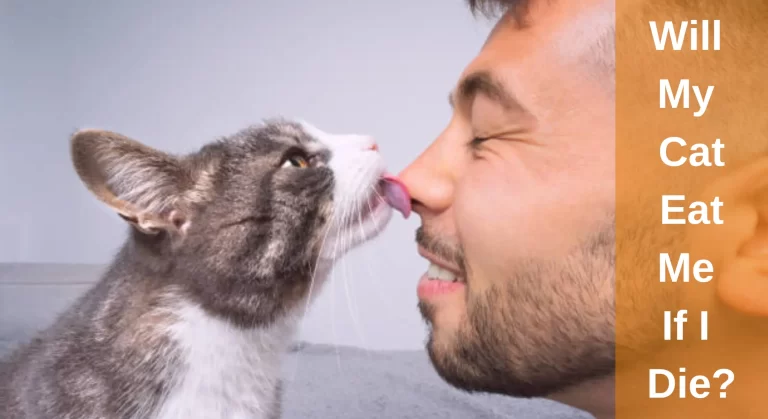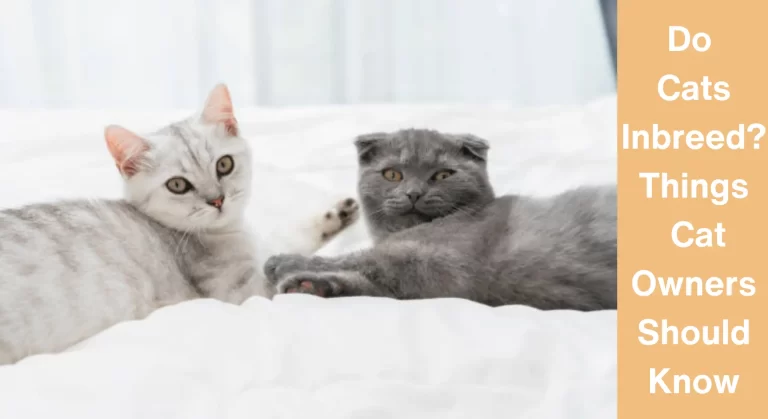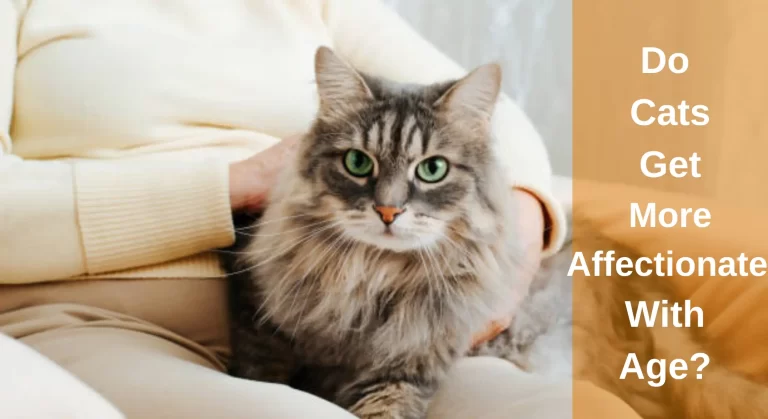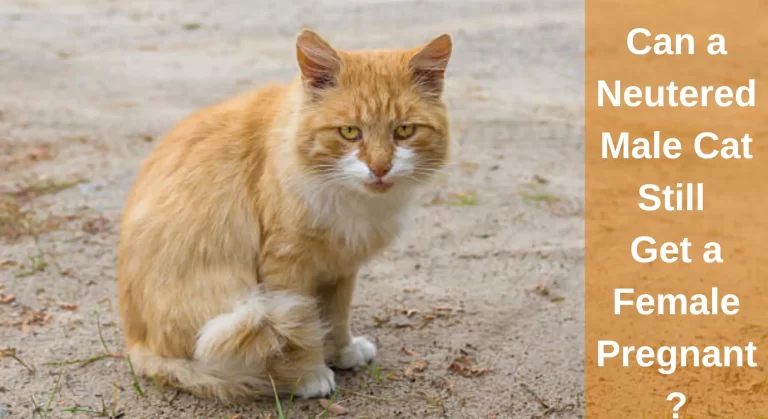Do Cats Gain Weight In The Winter? Do Cats Eat More In The Winter?
Cats’ appetites change with the seasons. During the winter, cats do eat extra food. You are not the only one who has noticed that their cats get more voracious in the winter. During the winter, all cats have a dramatic increase in hunger. They can adapt to seasonal fluctuations and changes in their metabolic requirements as they react to ice, rain, or snow.
Do cats eat more in the winter? It is natural for your cat to consume more food during autumn and winter as the temperature drops because it will use more energy to maintain its body temperature. Even if cats eat more during cold weather, it’s unlikely that cats will gain weight during the cold, as they put themselves into a state of torpor rather than completely shutting down to conserve energy.
Continue reading if you are interested in learning about how cats’ appetite change during winter and the seasonal behaviours of feline buddies.
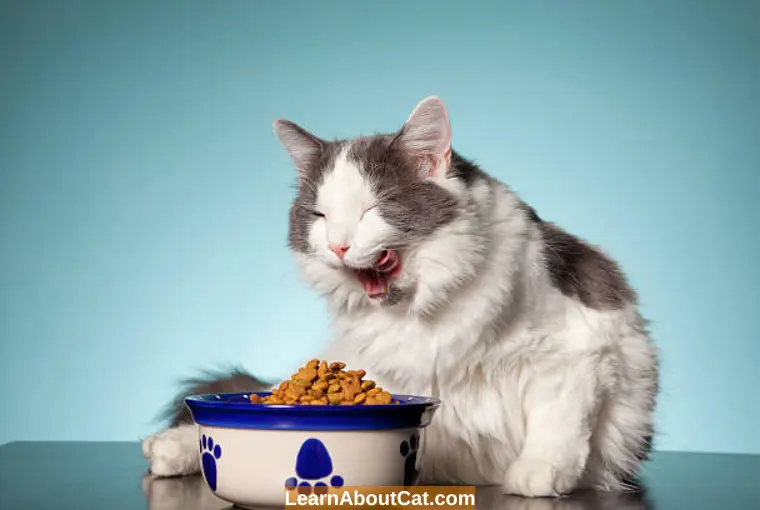
Do Cats Eat More In The Winter?
The University of Liverpool’s School of Veterinary Science conducted a four-year study and found that cats’ appetites increased by 15% during the winter.
In light of the fact that we understand how the seasons affect their metabolic rate, we can state that particular cats do not require extra food during the winter.
Cats only need to use more energy when it is icy outside. Increasing the amount of food consumed is one method for raising the cat’s body temperature during the cold.
However, the cat’s body temperature won’t alter if it remains indoors in a warm environment. Your cat will attempt to consume fewer calories to survive the cold. The cat won’t be able to utilize these extra calories. Thus, they will be stored as fat.
Are Cats More Hungry In The Winter?
Yes, cats will get hungrier as the winter progresses. It’s crucial to comprehend how cats recognize the start of winter.
Many animals use the length of the day to identify what time of year it is. Your cat will become more hungry even if your house is routinely kept at 80 degrees Fahrenheit all year round.
Do Indoor Cats Need More Food In The Winter?
As long as your indoor cat stays warm, he does not need to consume more food than an outdoor cat does because he is exposed to the cold.
Do Cats Gain Weight In The Winter?
Many cats tend to get heavier in the coldest months of the year. Cats won’t get fat even if they eat more throughout the cold.

The hibernating animal is one that stores fat by active means during hard times. This category excludes cats that are domesticated or wild. Cats enter a state of torpor rather than entirely shutting down their body to preserve energy.
Torpor is an expression of hibernation. On the other hand, non-hibernating animals experience inactivity for a much shorter period.
It allows wild cats to survive sterile conditions for a day or two. Torpor-sleeping feral cats will awaken and continue their feeding. Animals in hibernation will keep sleeping.
On the other hand, domestic cats rely on people to provide for their nutritional and everyday demands. As a result, they won’t need to hibernate or gain weight to be ready for the winter.
Over the winter, though, you could become more conscious of your catnapping. Your cat is worn out because of the cool weather and reduced daylight hours.
Even if metabolic changes might cause the cat’s extended slumber, hibernation won’t happen.
Instead of gaining weight in preparation for hibernation, your cat is confused and consuming more food than necessary for survival. Even people have higher appetites during chilly weather.
Though you could attribute it to the cold, it’s a survival strategy. This habit is normal and anticipated if you see your cat eating more throughout the winter.
Does The Weather Affect a Cat’s Appetite? Seasonal Fluctuations
According to research, most cats, even those that spend most of their time indoors, consume 15% less during the summer.
Food requirement is less in summer as energy expenditure is low. Seasonal differences in temperature and sunshine cause significant hormonal changes in mammals, impacting their metabolism and food consumption.
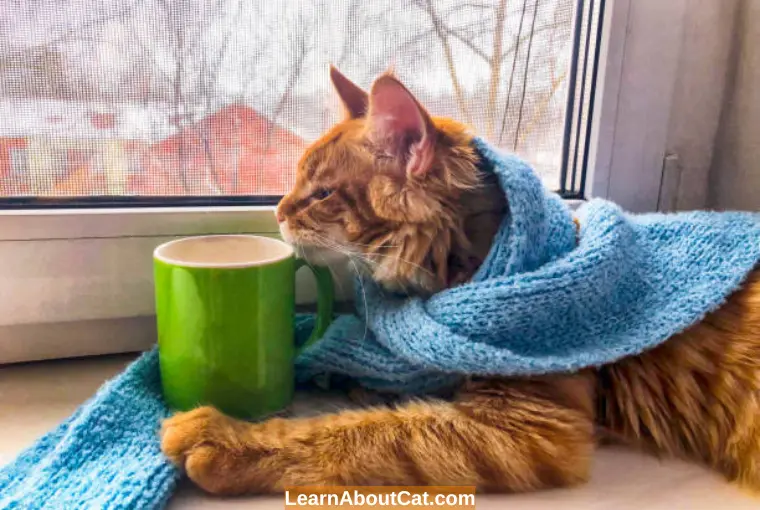
According to a study published in PLoS, researchers observed 38 cats in a centre in southern France over a four-year period and found that the cats’ eating habits fluctuated by the month.
- There was a decrease in cat food consumption during the summer months, which are June through August.
- Winter is the time when cats eat the most, from October to February.
- During the spring and early autumn, they ate somewhere in the middle.
- Cats consume 15% less during the summer.
What Should I Feed My Cats In the Winter?
You can feed your cats canned or dry food when it’s cold outside.
Food in cans freezes at shallow temperatures because of the high moisture content; dry food does not. Whenever you feed canned food to your outdoor cats, make sure they are served in insulated bowls.
Also Read: What Temperature Do Cats Like?
Do Cats Behave Differently in Winter?
Every species, including humans and cats, experiences seasonal change. Our actions and physical appearance are involved.
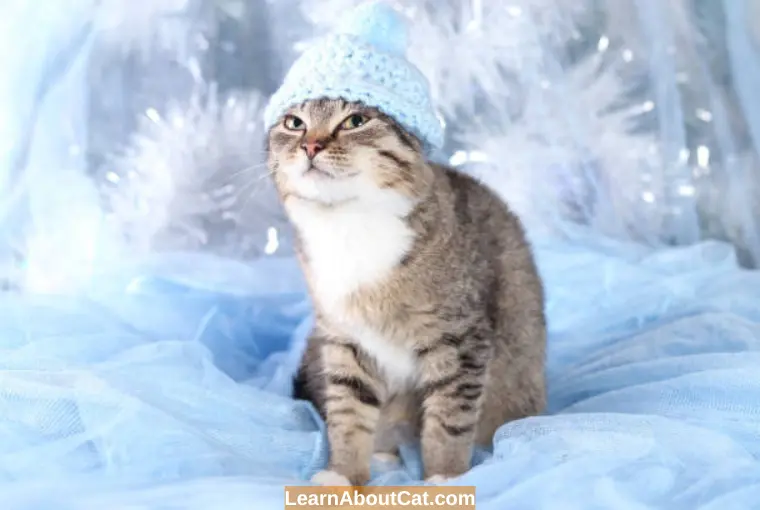
1. Seasonal Depression Disorder
You might be shocked to find that depression can affect your cat. A decrease in sunlight brings on seasonal affective disorder. A happiness-induced hormone called serotonin gets less active in winter (due to reduced sunlight).
This leads to signs of depression. Inactivity can also lead to depression. Shorter days and less exercise may contribute to SDD.
2. Improved sleep
You might be tempted to hit the snooze button when it’s freezing outdoors. It’s the same way your pet feels.
Sleepiness and naps appear to be unavoidable when one is inside a warm facility and can hear the chilling breeze outside. If your cat spends its entire life out, it may become more active to remain warm.
3. Behavioural Problems and Boredom
However, cats occasionally become bored in the winter. Like us, they frequently get into mischief when bored.
If they have nothing to do, they will find something to do. Most behavioural issues are caused by normal cat behaviours we don’t like.
To prevent your cat from being bored, play with them frequently. Think about playing with them and giving them a puzzle feeder—other felines like watching television.
4. Cosiness
Your cat is more likely to gravitate toward cosy surroundings. This may be the sunny side of your bed, the back of your couch, the cat condo, or even a window.
To offer a little more warmth, anticipate them to snuggle up with their tails tucked about them.
Frequently Asked Questions
In the winter, do outdoor cats need to be fed more?
As the temperature drops, outdoor cats will need more food in order to remain warm and healthy. It’s, therefore, necessary to feed your cat more if it ventures outside.
How long can a cat survive in the cold?
Cats who occasionally venture outdoors cannot endure temperatures below freezing for too long. If your cat lives mostly indoors, keep him inside when the temperature drops below 45 degrees Fahrenheit.
Do cats sleep more in winter?
A shorter daylight duration or a change in routine, like an earlier bedtime, may cause them to sleep longer than usual during the winter months.
Warp Up
A cat’s requirement for energy rises in cold weather. When the temperature outside drops, the cat must expend more fuel to maintain a comfortable body temperature. Cats require more food when it’s freezing outside than in hotter or warmer temperatures.
Who is Isabella?
My name is Isabella, and I am a dedicated and knowledgeable cat enthusiast. With years of experience caring for cats and a deep love for felines, I made a mission to help other cat lovers navigate the challenges of cat ownership.

